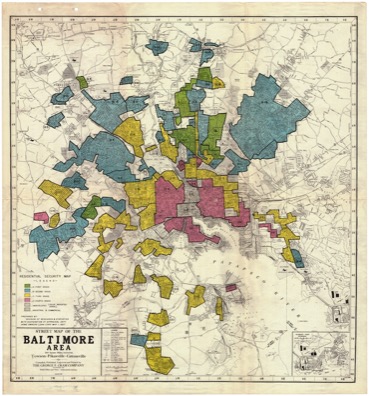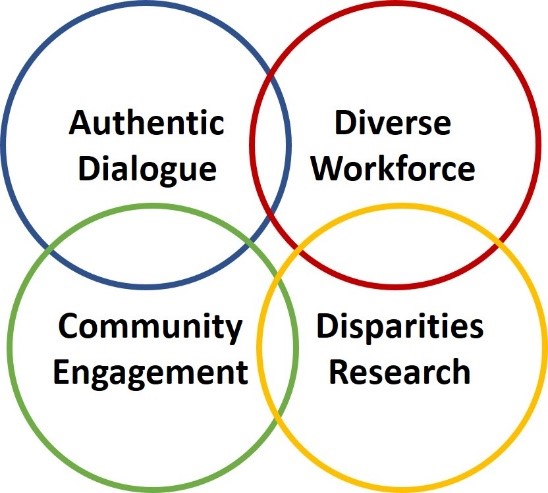Diversity, Equity and Inclusion Initiatives
Authentic Dialogue
We have created a longitudinal lecture series that introduces DEI topics that impact the care we provide to our patients in the community. These lectures are interactive and lead discussions on Baltimore’s history of institutional racism and the impact of structural inequities on public health, cancer outcomes, workforce recruitment/retention, and financial burden. In addition to didactic lectures, our speakers hold career guidance sessions directly with our fellows.
Our speakers have included:
- Dr. Karen Winkfield, Executive Director, Meharry-Vanderbilt Alliance, and Appointee to President Biden’s National Cancer Advisory Board
- Dr. Fumiko Chino, Radiation Oncologist and Financial Toxicity Expert at Memorial Sloan Kettering Cancer Center
- Dr. Chuck Callahan, Vice President of Population Health at University of Maryland Medical Center
- Dr. Robin Yabroff, Scientific Vice President, Health Services Research at the American Cancer Society
- Dr. Otis Brawley, Bloomberg Distinguished Professor at Johns Hopkins University
Diverse Workforce
We are wholly committed to increasing diversity within our fellowship and promoting a culture of equity and inclusion.
Our recruitment initiatives have included:
- Implicit bias training for all fellows and faculty involved in recruitment
- Targeted recruitment of trainees from Historically Black Colleges and Universities (HBCUs)
- Revamping of our interview and selection process to promote an environment of inclusivity
With these efforts, 25% of our incoming 2022-2023 fellowship class are Underrepresented in Medicine (URiM)
But we will not stop there.
Community Engagement
Our faculty and fellows are passionate about training and inspiring the next generation of physicians and scientists. We are committed to facilitating the pipeline of URiM trainees from high school to fellowship and beyond and to supporting trainees interested in serving underserved communities.
Our fellowship program community engagement initiatives include:
- ASCO Underrepresented Minority (URM) Medical Student Rotation (MSR) Program
- Mentorship program to introduce medical students to inpatient rotations, outpatient clinics, and research projects in oncology and cancer disparities
- ASH Minority Medical Student Award Program (MMSAP)
- Research mentorship program for URM medical students interested in academic hematology
- Diversity Postdoctoral Alliance Committee (DPAC) HBCU Mentoring Program
- Johns Hopkins Faculty and Trainees mentor undergraduate students from Morgan State University
- MERIT Health Leadership Academy
- Mentorship program with local URM high school and college students interested in careers in medicine
- ASH Sickle Cell Away Rotation
- Clinical rotation through the Johns Hopkins Sickle Cell Center for Adults for fellows at outside programs interested in comprehensive sickle cell disease training
Disparities Research
Over the past 5 years, our program has prioritized trainee research in hematology & medical oncology disparities and health policy research. We have built a robust network of medical students, residents, fellows, and faculty who are passionate about this research and have published their work in high-impact journals.
Our disparities research efforts have included:
- Development of an institutional disparities registry for cancer patients
- Participation in large cancer registry-based epidemiologic studies in healthcare disparities
- Leadership of national quality improvement efforts in trainee education
Our Johns Hopkins education leadership is also working to launch a new academic research track in social determinants of health (SDH). The SDH program will provide mentorship, didactic instruction, and experiential learning in social determinants of health for hematology and medical oncology fellows. This program will leverage the vast infrastructure and resources of Johns Hopkins University, reflecting an institution-wide commitment to justice, equity, diversity, and inclusion in research and clinical care.


